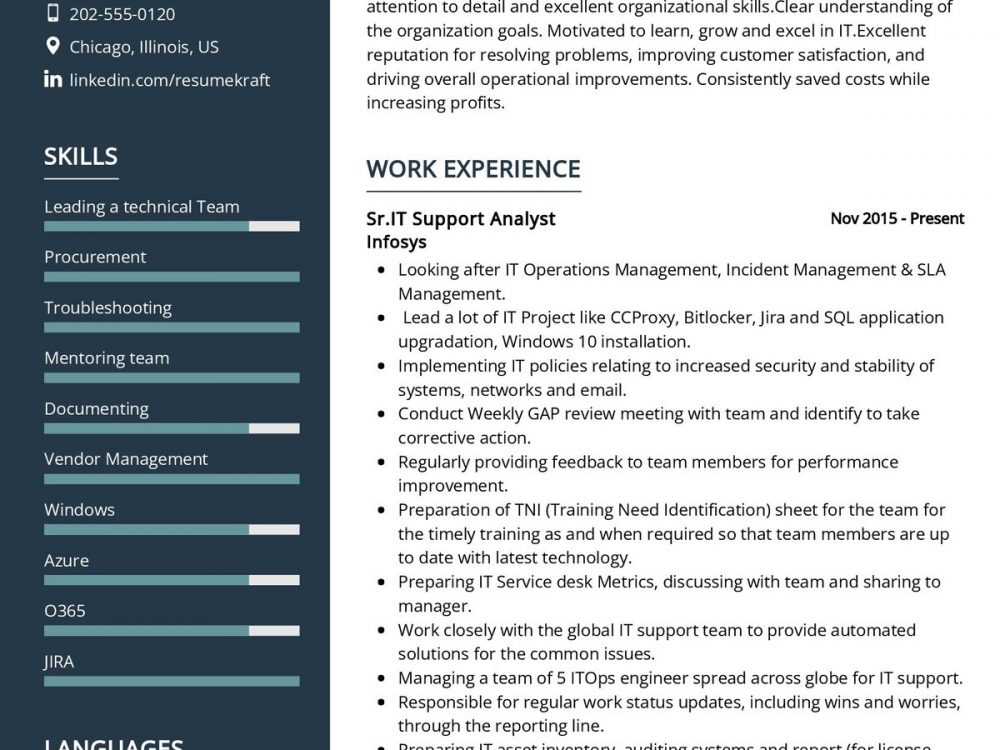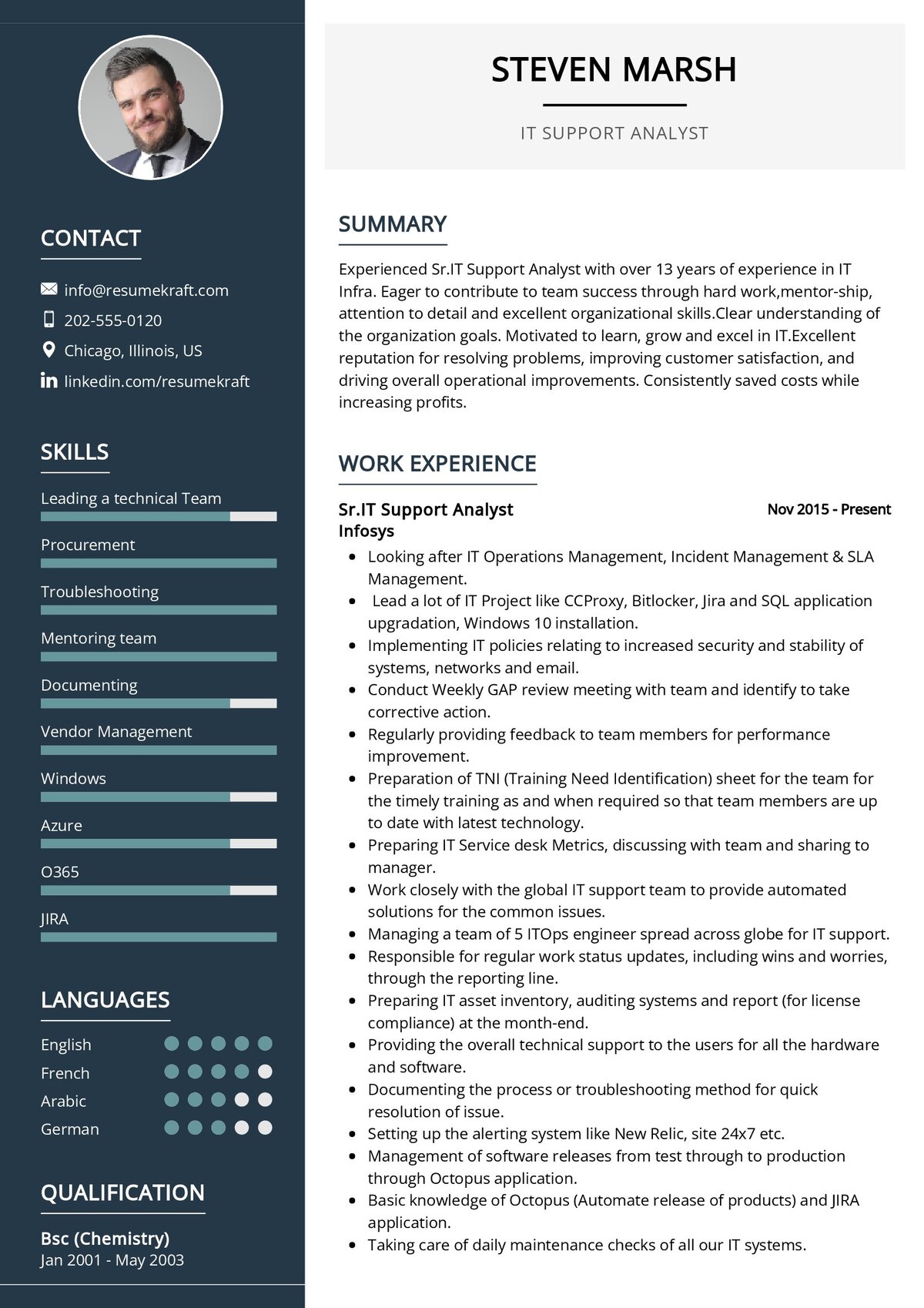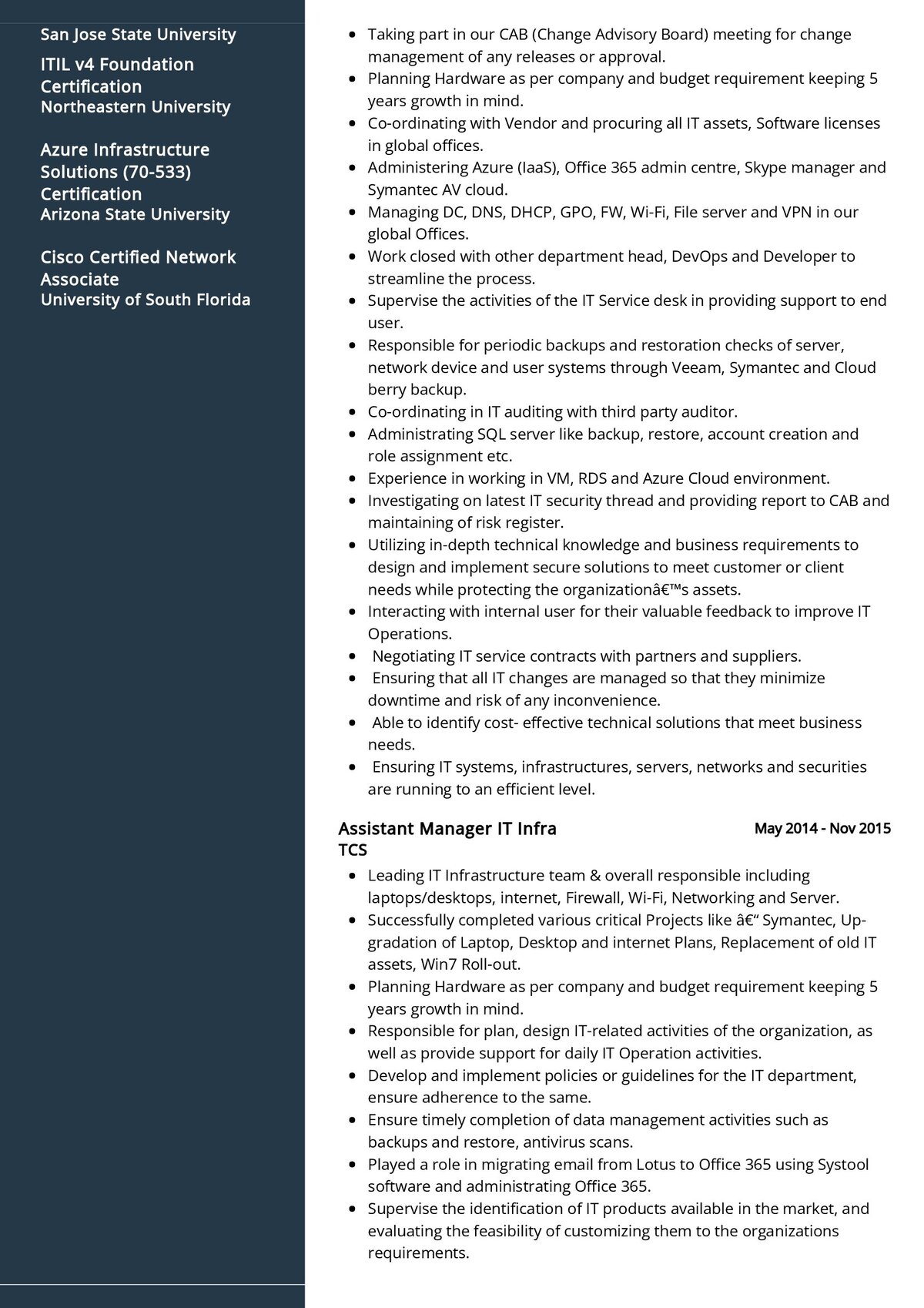What Should Be Included In A IT Support Analyst Resume?
When writing a resume for an IT Support Analyst position, it’s important to make sure it includes all the necessary elements. A well-crafted resume will help you stand out in a competitive job market and give you a better chance of getting hired.
The resume should start with a brief summary of your professional experience and qualifications. This should be followed by a list of relevant technical and soft skills. Mentioning your experience with problem solving and customer service is important, as well as any experience you have with software, programming, or network administration.
You should also list any certifications you have in connection to your IT support analyst job. This could include ITIL, CompTIA A+, or Microsoft certifications. Include any experience you have with user support, technical support, or help desk operations as well.
Be sure to highlight your ability to work in a team environment, as well as any other relevant skills. Include a section outlining any awards or recognition you may have received. Finally, include a list of references to back up your claims.
By making sure all the important aspects of a IT Support Analyst resume are included, you can give yourself a better chance of getting the job. Make sure to double check your spelling and grammar and to tailor the resume to each job you apply for. Doing this will help ensure your resume stands out and makes a great impression on potential employers.
What Skills Should I Put On My Resume For IT Support Analyst?
For an IT support analyst role, the skills you want to include in your resume should be related to strong technical and customer service abilities. Technical skills should include knowledge of the most recent operating systems, networks, software, hardware, and other IT topics. This is the foundation of any IT support analyst role and it’s important to have a comprehensive understanding of these elements.
In addition, you should demonstrate excellent customer service skills as IT support analysts often provide assistance to customers. You can showcase your customer service abilities by highlighting communication and people skills, such as a demonstrated ability to resolve customer issues quickly and efficiently, provide information in an understandable manner, and work collaboratively with colleagues to share knowledge.
Experience in troubleshooting, problem-solving, and conflict resolution should be highlighted in the resume as well, as IT support analysts will be expected to be able to resolve issues quickly and effectively. Lastly, the ability to stay abreast of changes in technology and security measures, as well as the ability to adapt to new systems, should be included in the resume.
What Is The Job Description Of The IT Support Analyst?
An IT Support Analyst is responsible for providing technical assistance and support to computer users in an organization. They resolve any hardware and software issues that arise, as well as configure computer systems, troubleshoot network problems, and perform regular maintenance tasks. IT Support Analysts may also be involved in the installation and maintenance of hardware, such as computers, printers, and phones.
The job responsibilities of an IT Support Analyst may include setting up, configuring, and troubleshooting computer hardware and software, as well as installing and upgrading software applications, setting up mail and network accounts, and providing technical support both over the phone and in person. They may also be responsible for the maintenance of databases and network security, as well as providing training on the use of computer systems and applications.
The skillset of an IT Support Analyst typically includes a high level of technical knowledge, as well as excellent interpersonal, problem-solving, and communication skills. They should also have a keen eye for detail, be able to work well under pressure, and have excellent organizational skills. Additionally, IT Support Analysts should have a good understanding of current technology trends and concepts.
What Is A Good Objective For A IT Support Analyst Resume?
When crafting a resume for an IT Support Analyst role, a great objective is essential. It is the first thing a potential employer will see, and it should quickly demonstrate your qualifications, skills, and experience. The key to a great objective is to be concise and clear, while highlighting your relevant qualifications for the position.
An effective IT Support Analyst resume objective should focus on the qualifications that are most relevant to the employer. For example, if the position requires experience in troubleshooting software, hardware, and networks, then the objective should emphasize expertise in those areas. Additionally, be sure to mention any certifications or other relevant knowledge and skills.
When writing the objective, it is important to keep it brief and to the point. Avoid using lengthy and jargon-filled sentences, and try to use action words to convey enthusiasm and confidence.
Finally, be sure to show the employer why you are a good fit for the position by expressing your interest and dedication to the job. Mention your passion for helping others, your commitment to ongoing learning, and your desire to make a positive difference in the workplace.
By creating a well-crafted objective, you will be able to quickly and effectively communicate your qualifications to the potential employer. As such, it is a critical part of the IT Support Analyst resume writing process.
What Are The Career Prospects In The IT Support Analyst?
An IT support analyst is a professional who provides technical assistance to individuals and companies by troubleshooting and resolving computer-related issues. It is a growing field with a great deal of potential. In the United States, the Bureau of Labor Statistics predicts a 10-percent increase in demand for IT support analysts between 2020 and 2030, which is much faster than their projected growth rate for other occupations.
As an IT support analyst, you’ll be responsible for identifying and diagnosing computer issues, implementing solutions, and providing support to users. You’ll need to have a strong understanding of computer hardware and software, networking, and operating systems. You’ll also need to be able to communicate effectively with users and resolve technical issues.
The job of an IT support analyst can be challenging, but it can also be extremely rewarding. You’ll have the opportunity to work with a variety of different technologies, and you’ll be an important part of ensuring the success of a business. With the right skill set and experience, you’ll be able to find plenty of job opportunities in the IT support analyst field, including remote and freelance roles.
Key Takeaways for an IT Support Analyst resume
Creating the perfect IT Support Analyst resume can be a daunting task. This article provides you with some key takeaways to help you craft a resume that stands out from the rest.
Firstly, IT Support Analysts should tailor their resume to the specific job they are applying for. Include specific terminology and technical tools that are relevant to the job. This will show the employer that you are knowledgeable about the job and that you understand the role and the industry.
It is also important to showcase your problem-solving and communication skills. As an IT Support Analyst, you need to be able to identify technical problems, come up with solutions and communicate them effectively to the customer. Make sure to highlight these skills in your resume.
Additionally, include examples of times when you have successfully handled difficult customer service situations. This demonstrates your dedication to providing excellent customer service and your ability to handle difficult conversations with clients.
Finally, employers want to see that you have a working knowledge of the IT industry. Make sure to list any industry certifications or training you have completed, such as CompTIA A+ and Network+ certifications.
By following these tips, you can create an effective resume and increase your chances of landing the job as an IT Support Analyst.



